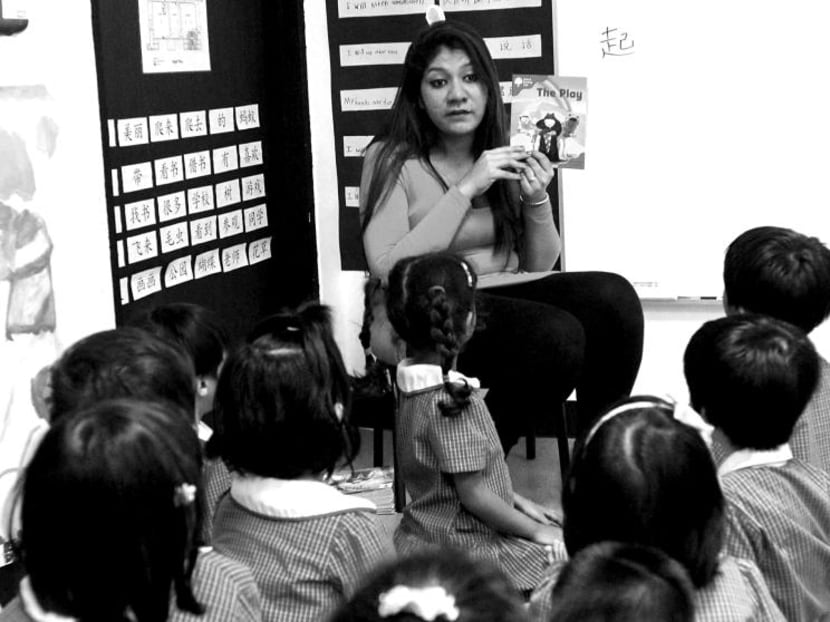Prioritise a child’s right to access quality childcare
In response to a parliamentary question on May 6 by Nominated Member of Parliament Walter Theseira, Mr Desmond Lee, Minister for Social and Family Development, revealed that each year from 2016 to 2018, there were applications by an average of 4,440 children for ComCare childcare subsidies, and 86 per cent of them were approved on average.
In response to a parliamentary question on May 6 by Nominated Member of Parliament Walter Theseira, Mr Desmond Lee, Minister for Social and Family Development, revealed that each year from 2016 to 2018, there were applications by an average of 4,440 parents for ComCare childcare subsidies, and 86 per cent of them were approved on average.
These subsidies are for low-income families who are unable to afford childcare fees after receiving the Basic and Additional Subsidies provided by the Early Childhood Development Agency.
This suggests that every year, there are more than 3,700 children whose parents cannot afford to pay childcare fees even after receiving the Basic and Additional Subsidies. These subsidies together can go up to more than S$700, depending on the family’s income level and the mother’s employment status.
Before subsidies, monthly fees for full-time childcare can exceed S$1,000 in some centres — although those operating under the Government’s Anchor Operator and Partner Operator schemes have to cap them at S$700 and S$800 respectively.
While these subsidies are much needed by low-income families, findings from research by the Association of Women for Action and Research (Aware) in 2017 suggested that there were high compliance and administrative costs involved before this could happen.
Access to quality childcare and early childhood education should be the right of every child.
Research shows that high-quality early childhood education is good for children’s development, for example, in skill acquisition.
If we prioritised a child’s rights, parents should not have to jump through hoops to afford childcare.
Low-income families should automatically be able to receive subsidised childcare for free.
This is much more efficient and convenient compared with the current system, whereby:
First, to qualify for the maximum amounts, mothers must be working a minimum of 56 hours a month and provide proof of work. However, the type of work low-income mothers tend to do may not allow them to meet this requirement. For example, many of our respondents do informal, ad-hoc, home-based work. Producing proof of work may be difficult since they do not have employers, and the sporadic nature of their work may mean that they cannot meet the 56-hour mark every month.
Second, childcare operators incur high administrative costs. Those we interviewed reported that there is a fair amount of paperwork and back-and-forth with the Ministry of Social and Family Development (MSF), parents and social workers (if applicable), when appealing for more subsidies. One operator said that the extra paperwork involved is often a disincentive for operators to enrol low-income children.
Earlier this year, the MSF announced that childcare subsidies for non-working mothers looking for employment will be extended from three to six months. This is a positive sign as it reduces compliance and administrative costs.
We hope that this signals an eventual move to automatic free childcare for all low-income families.







